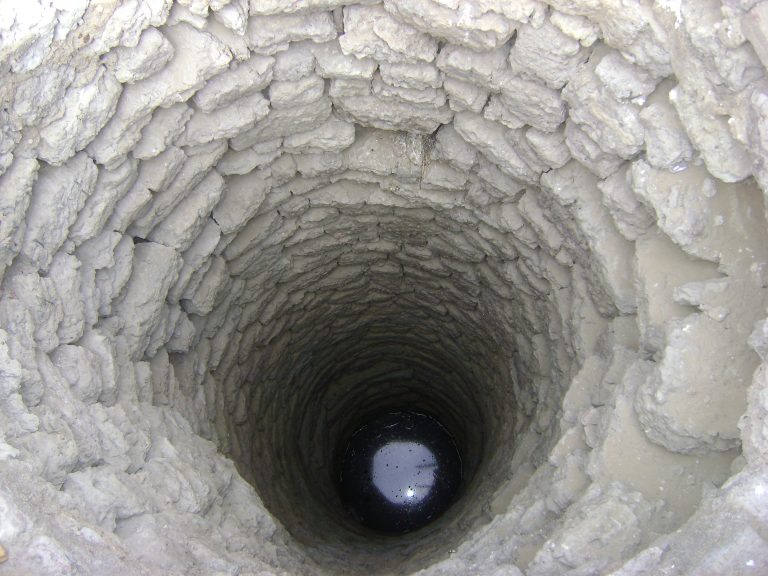
Despite being from a poor background, Marui had shown a great commitment to beloved motherland and near and dear people. She offered a strong resistance to a person in power
By Noor Ahmed Janjhi
Marui, a leading character of Thar, has been a central character of the classical Sindhi poetry and folklore of Sindh. Marui was a humble and down to earth lady belonging to a goatherd family. Despite being from a poor background, she had shown a great commitment with beloved motherland and near and dear people. She offered a strong resistance to a person in power. Her spirit of determination, commitment, resistance and resilience was very exemplary. Honoring these characteristics of her, people feel proud to keep her name (Marui) on their babies.
Sindhi folklore is full of the legends, tales and poetry explaining the courage, resistance and resilience of Marui. People remember her character through riddles and couplets.
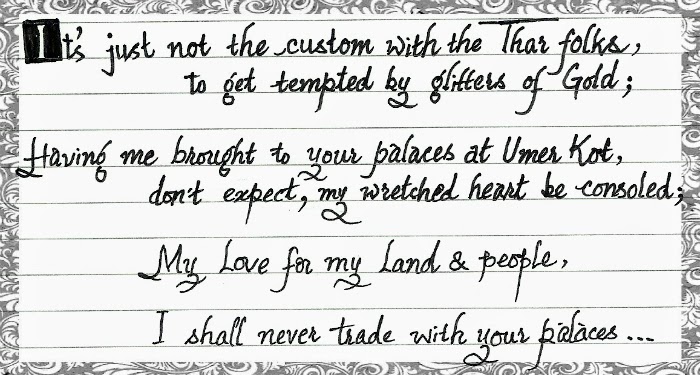 Classical Sindhi poetry remembers her character under the tag of Sur Marui. It is a thesis reflecting an ideology of commitment and resilience. The story of Marui explains love to Malir and Maru people, love to natural scenic beauty of Thar, love to rural life, love to goats and sheep and love to pasture lands. All of that develop a resilient character which takes a human being towards honoring its commitment and remain steadfast in harsh and hard situations in life. Miyoon Shah Innat Rizvi, Shah Abdul Latif Bhittai, Khalifo Nabi Bakhsh, Sachal Sarmast and other poets have composed poetry on this legendary character of Thar.
Classical Sindhi poetry remembers her character under the tag of Sur Marui. It is a thesis reflecting an ideology of commitment and resilience. The story of Marui explains love to Malir and Maru people, love to natural scenic beauty of Thar, love to rural life, love to goats and sheep and love to pasture lands. All of that develop a resilient character which takes a human being towards honoring its commitment and remain steadfast in harsh and hard situations in life. Miyoon Shah Innat Rizvi, Shah Abdul Latif Bhittai, Khalifo Nabi Bakhsh, Sachal Sarmast and other poets have composed poetry on this legendary character of Thar.
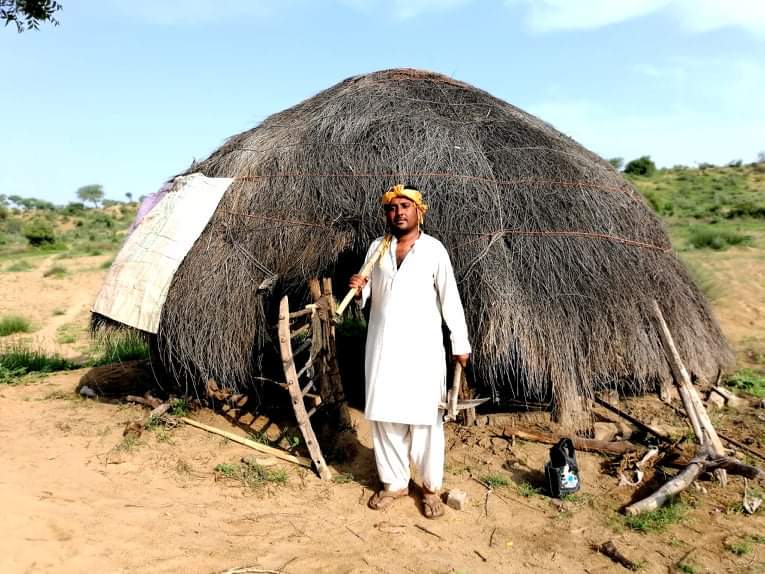 Ghullam Muhammad Janjhi, a well-known poet of classical Sindhi poetry has also depicted the character of Marui with special touch of the environment of Thar and lifestyle of Thari communities. He has mentioned many a name of range flora of Thar and association of people with the environment. The character of Marui emerges out of the environmental context of Thar. The poet says:
Ghullam Muhammad Janjhi, a well-known poet of classical Sindhi poetry has also depicted the character of Marui with special touch of the environment of Thar and lifestyle of Thari communities. He has mentioned many a name of range flora of Thar and association of people with the environment. The character of Marui emerges out of the environmental context of Thar. The poet says:
ماروئڙا ملير ۾، ڪڍن ڏينھن ڪاپي،
اچي اويرا مال مان، پين جھڻ جھانپي،
للر جي لاپي، ڏوٿي ڪٽين ڏينھڙا،
(He describes the lifestyle of Maru people. Maru live a spendthrift life. They go along with their cattle and drink lassi on return from pastures. They use the plant of lulir in food)
ڏوٿي ڪٽين ڏينھڙا، ھو وانڍين ۾ ويھي،
شھر نه ڏٺا سومرا، پکي جن پيھي،
ننگن جا نيھي، سي نه وساريان سومرا
(Dothi or seekers of organic food live in small hamlets called Vandh. They did not visit urban settlements. They are committed people not to be forgotten at all)
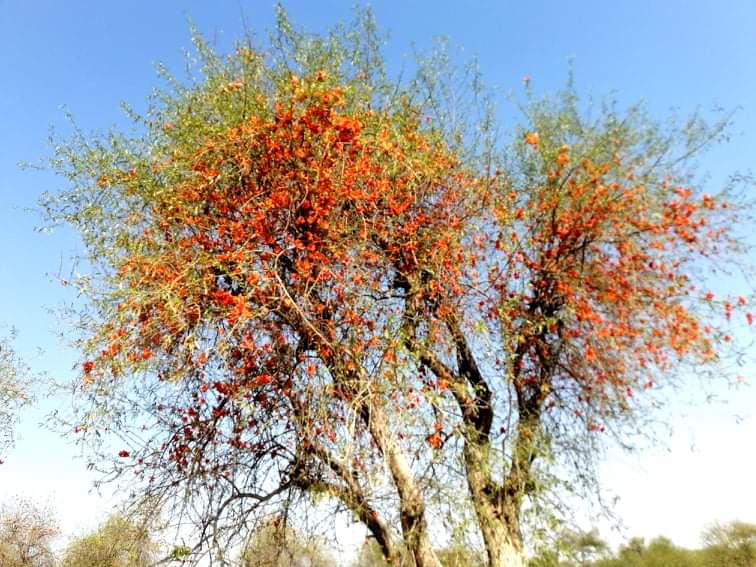 It is the natural environment and organic food that makes Maru people healthy and resilient. They seek organic food daily and use it as the food supplant. Maru people are familiar with pastures and live away from urbanization. The natural environment makes them strong and such strong, resilient and committed people cannot be forgotten at all.
It is the natural environment and organic food that makes Maru people healthy and resilient. They seek organic food daily and use it as the food supplant. Maru people are familiar with pastures and live away from urbanization. The natural environment makes them strong and such strong, resilient and committed people cannot be forgotten at all.
Marui remembers her companion girls who shown resistance against her abduction. Maru people mourned against her abduction. They left their cots and slept on the ground. It is too hard to forget them. Remembering her friends Marui says:
عمر ڪيئن وساريان، ٿورو ٿر وارين،
سوگ ڪئي سومرا، ججھي مون لئه جن،
پٿر ستيون پنھواريون، تسا ڏئي تن،
مون کي ماروئڙين، ماريو ان ميار سان
(Marui feels highly grateful to the people of Thar who mourned against her abduction. They slept on the ground and left their cots. To be ungrateful to them and to forget them will be a message of anxiety)
سي نه وساريان سومرا، کُنڀيون جنين کاڄ،
ڏوٿي ڀانئن ڏيھه ۾، پُلاِءُ کي پھاڄ،
سڱر ڪيو سھاڄ، کين کٿيرا خوشي مان
(Marui says she will not forget those who eat mushrooms. They refrain from pullao or cooked rice. They love to eat the kandi pods)
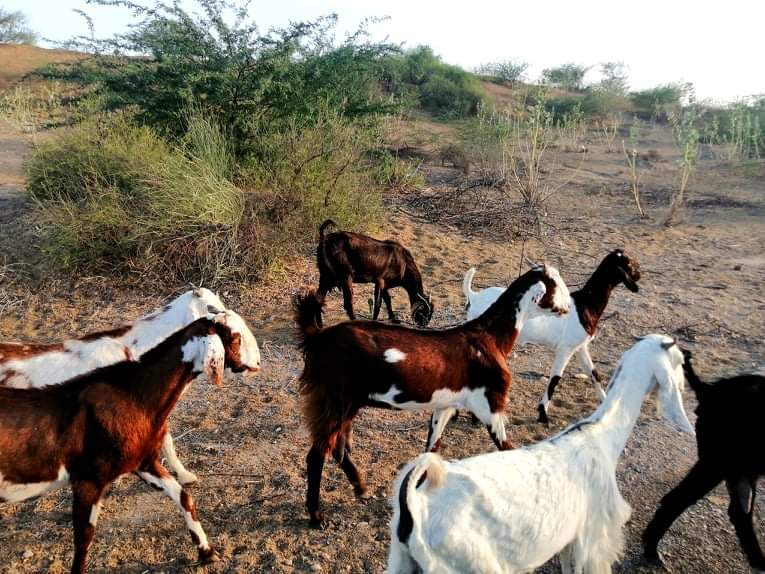 The natural lifestyle of Thari people attracts Marui and she takes her inspiration from those plants, trees, leas, sand dunes and water reserves. She becomes strong and resilient. Her resilience not only saves her in the prison days at Umerkot but also enables her to be an antagonist and dissident to a person who is in power. By showing strong resistance, she becomes representative of have-nots. Always haves have underestimated have-nots and exploited them too. The downtrodden and marginalized people have always been used and abused or trampled by people in power. From the barbaric cruel people of yore to the present day icons of technology and market have always exploited simple, naïve and entrapped people. The means and measure of exploitation has been passed through changes but the exploitation remains in one or the other form. Marui is a role model for have-nots who are bearing the exploitation by considering them as weaker ones.
The natural lifestyle of Thari people attracts Marui and she takes her inspiration from those plants, trees, leas, sand dunes and water reserves. She becomes strong and resilient. Her resilience not only saves her in the prison days at Umerkot but also enables her to be an antagonist and dissident to a person who is in power. By showing strong resistance, she becomes representative of have-nots. Always haves have underestimated have-nots and exploited them too. The downtrodden and marginalized people have always been used and abused or trampled by people in power. From the barbaric cruel people of yore to the present day icons of technology and market have always exploited simple, naïve and entrapped people. The means and measure of exploitation has been passed through changes but the exploitation remains in one or the other form. Marui is a role model for have-nots who are bearing the exploitation by considering them as weaker ones.
Ghullam Muhammad Janjhi, expresses through the character of Marui, resilience and commitment of such down trodden people. Generally, people hate their poor condition and want to become rich to come out of the trap. Economy can boost up people but it cannot facilitate people to enjoy full freedom. Many a rich people in the world live a life in slavery. Intellectual freedom is the real freedom. Marui presents such an example. She is neither afraid of a king nor motivated to the luxuries of power. She loves nature and seeks her salvation through nature. The poet describes the natural context in Sur Marui as:
فاقو فرحت جن کي، بر ۾ ساک ڀرم،
تني جو شرم رب رکندورحم سان
–
فاقو فرحت جن کي، ستر جني ساڻ،
روڙي سا رهاڻ، عمر اباڻن جي
–
فاقو فرحت جن کي، سترجني سيڻ،
ولهو ڪڍن نه ويڻ، ڳالهيون ڪندي ڳوٺ ۾
–
فاقو فرحت جن جو، اُچو جن اخلاق،
سادا سانگي منهنجا، نڪو طمطراق،
فاقو ۽ فراق، مونهان پوءِ ملير ۾
–
فاقو فرحت جن کي، عجب اوانسان،
جهيڻو ڪڇن جهان کي، لنبي کي لسان،
اوءِ ماروئڙا مان، ڏسان وڃي ڏيهه ۾
–
فاقو فرحت جن کي، پپن منجهه پراڻ،
عمر اڄ انهن جا، وٺا سڀ وٿاڻ،
ڏاڍا تنهنجي ڏاهه کان، ڀيلا تن جا ڀاڻ،
ورين جا وٿاڻ ،ادا ڏسان اکين سان
–
فاقو فرحت جن کي، لوئيون لباس،
ڄارين ڄائي آنديئي، ڪئي ڪونه تپاس،
عمر مون کي آس، ماروءَ مٽ ملير جي
–
فاقو فرحت جن کي، للرجن لاپو،
چاري مال چوڏس کي، ڪن ڪوڪاپو،
ڏکئي ڏوراپو، مُڪوتن ملير مان
–
فاقو فرحت جن کي ،سانئي تي صبر،
روزي تن جي رحم سان، اونهي منجهه ابر،
ڦڪائي ۽ فخر، رکن ڪونه روح ۾
–
فاقو فرحت جن کي ڪُوري جن جو قوت،
ڀرم وارا ڀيڻين، سدائين ثابوت،
سي لوئڙيارا لاهوت، پکا جن ڀائر ۾
 In all the above couplets, Marui expresses her satisfaction on her own condition. It is an honorable and humanistic condition. She seeks solace from her situation of hunger. Her satisfaction with the condition makes her strong and not to be inclined towards kingly luxuries. It enables her to make right choice. The right choice is the real challenge. The character of Marui demonstrates the strong commitment to motherland and people, resilience in toilsome conditions and dissidence response to highhandedness by the people of in power.
In all the above couplets, Marui expresses her satisfaction on her own condition. It is an honorable and humanistic condition. She seeks solace from her situation of hunger. Her satisfaction with the condition makes her strong and not to be inclined towards kingly luxuries. It enables her to make right choice. The right choice is the real challenge. The character of Marui demonstrates the strong commitment to motherland and people, resilience in toilsome conditions and dissidence response to highhandedness by the people of in power.
Ghullam Muhammad Janjhi has beautifully depicted the natural mosaic of Thar, inspiring resilient character of Marui and the rich culture of Thar in his poetry.
[author title=”Noor Ahmed Janjhi” image=”https://sindhcourier.com/wp-content/uploads/2021/05/Noor-Ahmed-Janjhi-Sindh-Courier.jpg”]Noor Ahmed Janjhi is a senior educationist based in Desert District Tharparkar Sindh. He is author of several books in Sindhi and English on folk literature including two poetry book. [/author]